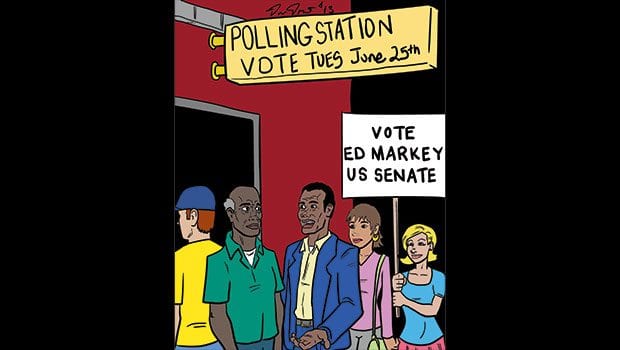
When Boston’s black community first learned that the majority of the city’s population belonged to a minority group, there was a sense of elation. It was as though something special had been achieved. Then reality began to set in as residents realized that nothing more than an opportunity had been created.
People began to realize that population numbers of themselves are insignificant. They only matter if people vote regularly, regardless of whether the candidates or the campaigns are inspiring. The primary reason for going to the polls has always been to express the power of the community and to be counted as an individual.
Political activists will respect an individual more when he or she is part of a community that is politically sophisticated and votes. The only two sources of secular power in America are wealth and political clout. There was a time when both eluded Boston’s black community.
In 1940, Boston’s black population was 23,675. That was only 3.1 percent of the total. If every eligible voter went to the polls and cast a vote for the same candidate that would still not constitute a landslide. With such a small population, blacks were politically powerless. Back then there were no substantial Hispanic or Asian citizens to increase the minority population. Even 20 years later when in 1960 the black population had grown to 63,165, it was still only 9.1 percent of the total.
According to the 2010 census, Boston’s black population grew to 138,073 in 50 years. Add to that another 7,500 to account for an estimate of blacks of mixed race and the total is 145,573 for 24 percent of the city’s population, a significant number. In the November presidential election, blacks across the nation outpaced the voting rate for whites. Blacks were valiantly fighting back against attempts of whites in many states to disenfranchise them.
Massachusetts voters have a different challenge on Tuesday, June 25. Barack Obama is not on the ballot to fire up the electorate. This is a vote from your head rather than your heart. Obama needs as many Democrats in the U.S. Senate as he can get to develop the power to support his program. Obama needs Ed Markey in the Senate.
So you know what you have to do! Make it mean something that Boston has a majority population that belongs to minority groups.






